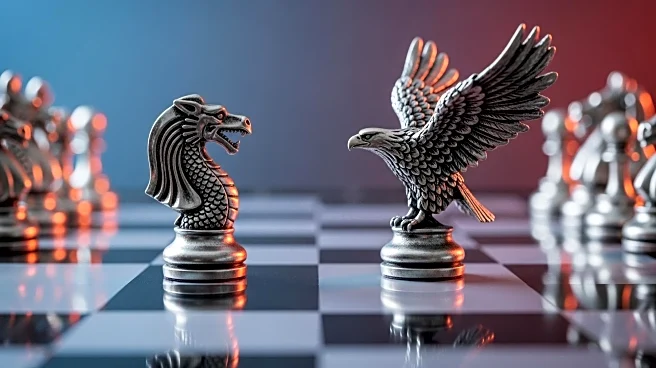What is the story about?
What's Happening?
Xi Jinping, the leader of China, is hosting a summit in Beijing attended by over 20 leaders, primarily from Central Asia, including President Vladimir V. Putin of Russia and Prime Minister Narendra Modi of India. This event is accompanied by a military parade showcasing China's latest missiles and warplanes. The summit and parade are part of Xi's strategy to leverage history, diplomacy, and military power to reshape the global order, which has been dominated by the United States. The gathering highlights China's growing influence and its efforts to strengthen ties with countries that have been alienated by U.S. policies, such as India due to tariffs and Russia due to geopolitical tensions.
Why It's Important?
The summit signifies a shift in global alliances, with China positioning itself as a central figure in international diplomacy. By hosting leaders like Modi and Putin, Xi is capitalizing on the strained relations these countries have with the United States. This could lead to a realignment of global power structures, potentially diminishing U.S. influence in regions like Central Asia. The military parade further underscores China's military capabilities, signaling its readiness to assert its power on the world stage. This development could impact U.S. foreign policy, trade relations, and military strategies, as China seeks to expand its geopolitical reach.
What's Next?
The outcomes of the summit may lead to strengthened economic and military partnerships between China and the attending nations. This could result in increased collaboration on projects that bypass U.S. influence, such as infrastructure development and trade agreements. The U.S. may need to reassess its foreign policy strategies to counterbalance China's growing influence. Additionally, the military parade could prompt neighboring countries to bolster their own defense capabilities in response to China's display of military strength.
Beyond the Headlines
The summit and parade reflect deeper geopolitical shifts, with China using historical narratives and diplomatic engagements to challenge the existing global order. This approach may influence other nations to reconsider their alliances and economic dependencies. The event also highlights the cultural and ideological dimensions of China's strategy, as it seeks to present itself as a leader in global governance and military prowess.














